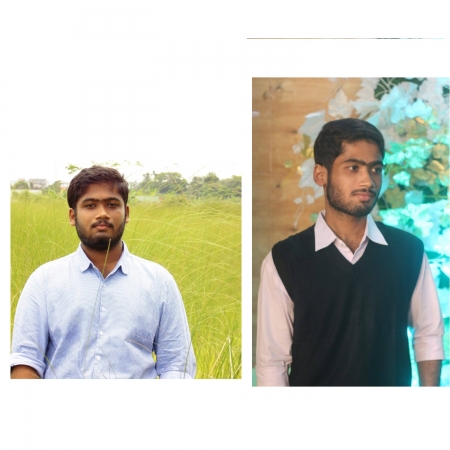
Histórias

Transforming My Body, Changing My Life: Defeating Obesity
I’m, Sabith Hasan Khan (26), a graduate of the public health discipline at Jahangirnagar University, Bangladesh. At present, I’m working for a non-governmental organization. I’m writing here to tell my story of how I fought and won over my obesity.When I first joined university in 2017 my weight was around 73 kg with 5 feet 6 inches height. My Body Mass Index (BMI) was higher than normal. I felt that my uncontrolled eating habits, idleness, almost zero physical exercise, and working late at night without proper sleep were responsible for my obesity. Before 2017 to until 2020, my carbohydrate intake always exceeded my bodily requirement. At that time, soft drinks like Coca-Cola and sweets topped my food list almost every day. Not finding clothes, due to large waistline, at store often made me embarrassed. My classmates made fun of me and often joke about my physical condition, which made me feel very shy and importantly disappointed. Despite all this, I could not give up my habit of overeating, and I occasionally went out to restaurants where the food was cooked with extra oil, extra-tasting salt, and excessive sugar. These factors accelerated my weight gain, resulting in my weight reaching 86 kg at the beginning of 2020. However, in the same year I read a column on obesity in a national daily and learned about diseases associated with it.Not only that I was not aware about these things before, even tough I was studying public health. It was the national daily column and the embarrassment served by my fellow people that made my desire firm to become what I am today. I started to following a diet prepared by me, searching literature in internet (I would suggest my reader to consult a nutritionist or relevant doctor). I replaced eating bread with having only a boiled egg and black coffee in the morning, reduced the amount of rice in the lunch, and started eating vegetables at dinner with less carbohydrate food. I went to bed early at night and get up early in the morning to run and do some physical exercise. Physical exercise included push ups, planks, and sit-ups. Initially, I did these exercises sparingly, but gradually I increased the level of exercise, which accelerated my weight loss process. After a couple of months, I noticed a slight change. The lethargic feeling and fatigue started to fade away. And from here, I started work even harder. In 2020, when the Coronavirus hit the whole world, everyone went into quarantine (in home). By this time, I stopped running or walking outside. But I increased the level of other physical exercises at home and continued following the diet as well. I cut out all sugary foods and ate fewer complex carbohydrates. I took potatoes, chickpeas, and vegetables as a source of carbohydrates. At late 2020, my weight bar came down to 69 kg from 86 kg. Finally, my change was visible and I started to experience life in a different way. I joined gym and started weight lifting. As a result of regular weight lifting, my muscles becamestrengthened, and my body fat percentage lowered than before. Following the suggestion of my trainer, I increased the amount of protein in my diet which was necessary for my muscle building. At the beginning of 2021, after exercising for 4 months, my weight came down to 65 kg, and my BMI was 23.1, which is normal according to the BMI scale.My neighborhood and friends were surprised to see this change.Currently, I am exercising 10 minutes a day due to my engagement in professional life, but I continued following my diet. The prevalence of general obesity is increasing globally both in developed and under developing nations like Bangladesh. The high increasing pattern of the population in the country has been found to be linked with rapid urbanization and an epidemiological changing pattern from communicable to non-communicable diseases. Moreover, evidence on the burden of obesity and associated factors are lacking or insufficient, especially among young adults in Bangladesh. As a public health student and development professional, I would request government and development partners to provide resource to measure the prevalence and related risk factors of obesity among university students of all divisional regions in Bangladesh.
https://www.facebook.com/BangladeshNCDF